Burnout often sneaks up quietly, disguising itself as simple fatigue or stress until it takes over every part of your life. Many people push through, assuming exhaustion is just part of being productive. However, ignoring the early warning signs can lead to serious emotional and physical consequences. Recognizing burnout early helps you take steps to restore balance before it drains your motivation and well-being. By understanding what burnout looks like, you can make meaningful changes that protect both your health and happiness.
Constant Fatigue That Rest Doesn’t Fix
 Feeling tired after a long day is normal, but burnout fatigue is different. It lingers no matter how much you sleep or rest. You might wake up exhausted, struggle to focus, and feel mentally drained even after small tasks. This kind of exhaustion is your body’s way of signaling that it’s running on empty. Over time, it affects your mood, your concentration, and even your immune system. If rest stops make you feel better, it’s a strong sign you need to slow down and reassess your workload.
Feeling tired after a long day is normal, but burnout fatigue is different. It lingers no matter how much you sleep or rest. You might wake up exhausted, struggle to focus, and feel mentally drained even after small tasks. This kind of exhaustion is your body’s way of signaling that it’s running on empty. Over time, it affects your mood, your concentration, and even your immune system. If rest stops make you feel better, it’s a strong sign you need to slow down and reassess your workload.
Growing Cynicism and Irritability
One of the most overlooked signs of burnout is a change in attitude. You might find yourself snapping at coworkers, feeling indifferent about tasks you once enjoyed, or dreading even minor responsibilities. This shift often starts subtly but grows stronger as stress piles up. Burnout can make you feel disconnected from your goals and the people around you. It’s not about laziness or lack of motivation; it’s your mind’s way of protecting itself from constant overload. Recognizing this pattern early allows you to step back before your relationships and performance suffer.
Declining Productivity and Concentration
If you notice that it takes longer to complete tasks or that you’re making frequent mistakes, burnout may be creeping in. It’s easy to blame a lack of effort, but mental fatigue limits focus and decision-making ability. Over time, you might start avoiding challenging work or lose confidence in your skills. This decline isn’t a reflection of your talent but a warning from your body and mind. Giving yourself proper breaks and realistic expectations can help reverse the trend before it affects your reputation or career growth.
Physical Symptoms That Shouldn’t Be Ignored

Burnout doesn’t just affect your mind; it takes a toll on your body, too. Frequent headaches, stomach problems, and unexplained aches often appear when stress levels remain high for too long. You might also experience changes in appetite or sleep patterns. Many people overlook these symptoms or blame them on busy schedules, but persistent discomfort is your body’s way of demanding attention. Ignoring these physical signs can lead to more serious health issues, so it’s important to listen and take action early.
Loss of Motivation and Enjoyment
Burnout slowly steals joy from things that used to make you happy. You might lose enthusiasm for hobbies, social activities, or even your favorite meals. Work feels like a burden rather than a purpose, and personal time no longer feels relaxing. This emotional numbness is often the final stage of burnout and can lead to depression if left unchecked. Reconnecting with what brings you joy, setting boundaries, and seeking support from friends or professionals can help reignite your sense of purpose.
Recognizing burnout before it takes hold is the key to recovery. If you’re feeling constant exhaustion, irritability, or loss of motivation, it’s time to pause and recharge. Ignoring these warning signs can lead to more serious consequences for both your mental and physical health. Taking breaks, setting limits, and prioritizing self-care aren’t signs of weakness—they’re acts of self-preservation. By identifying burnout early, you can regain control, restore your energy, and build a healthier relationship with work and life.…




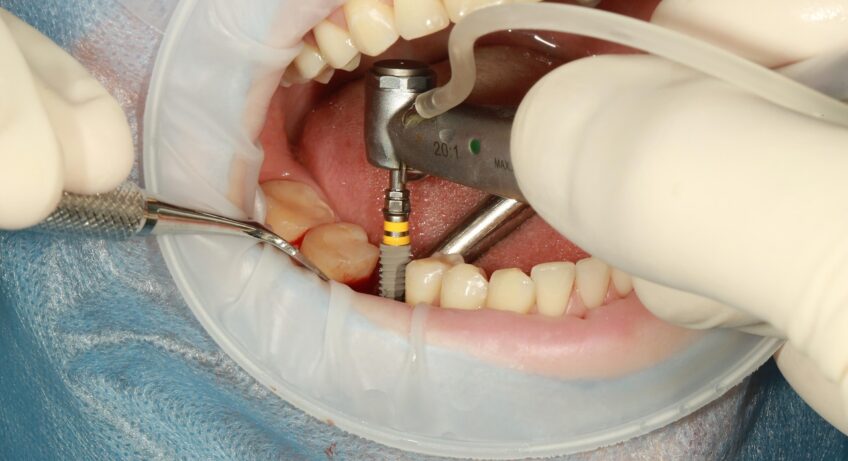
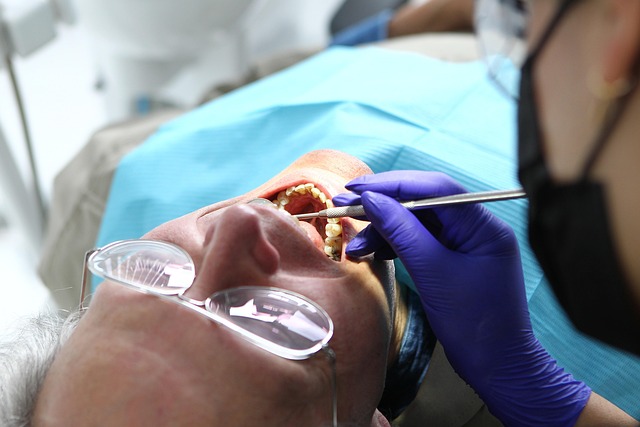
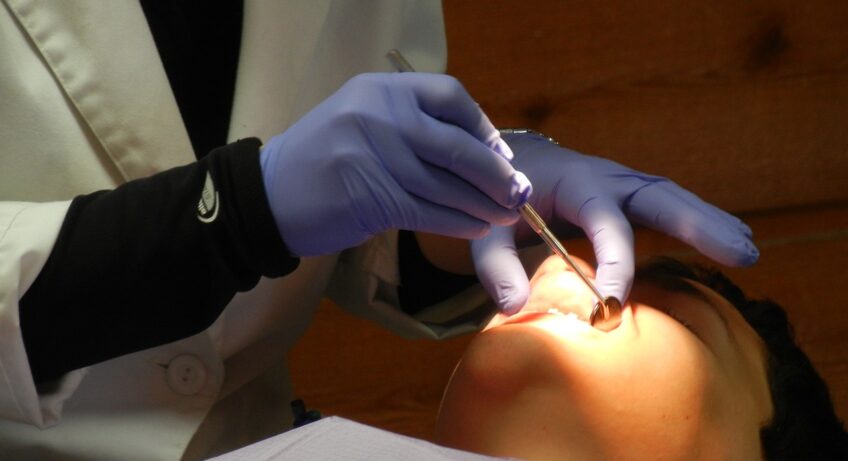
 A bright smile can boosts your confidence, and professional teeth whitening is among the most popular and affordable cosmetic dental treatments available. Unlike over-the-counter whitening kits, professional treatments use higher-grade bleaching agents and advanced techniques to deliver quick, noticeable results. Many clinics offer laser or customized whitening trays to provide safe, long-lasting effects. Since the procedure is fast and relatively inexpensive, teeth whitening is ideal for those looking to enhance their smile without a major investment.
A bright smile can boosts your confidence, and professional teeth whitening is among the most popular and affordable cosmetic dental treatments available. Unlike over-the-counter whitening kits, professional treatments use higher-grade bleaching agents and advanced techniques to deliver quick, noticeable results. Many clinics offer laser or customized whitening trays to provide safe, long-lasting effects. Since the procedure is fast and relatively inexpensive, teeth whitening is ideal for those looking to enhance their smile without a major investment.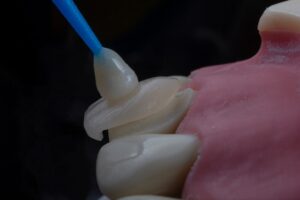 Porcelain veneers are a great option for those looking for a dramatic
Porcelain veneers are a great option for those looking for a dramatic 




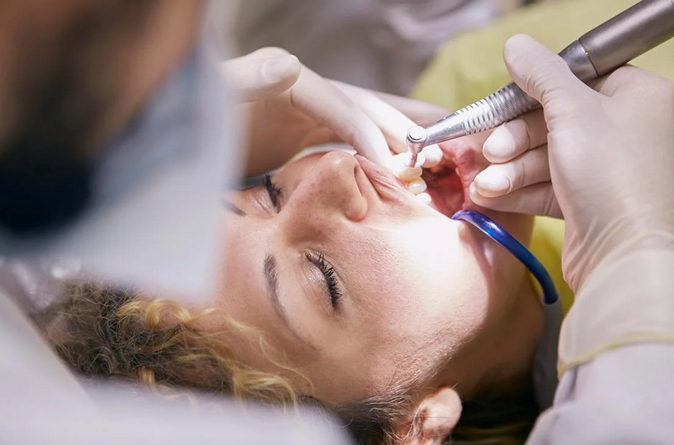

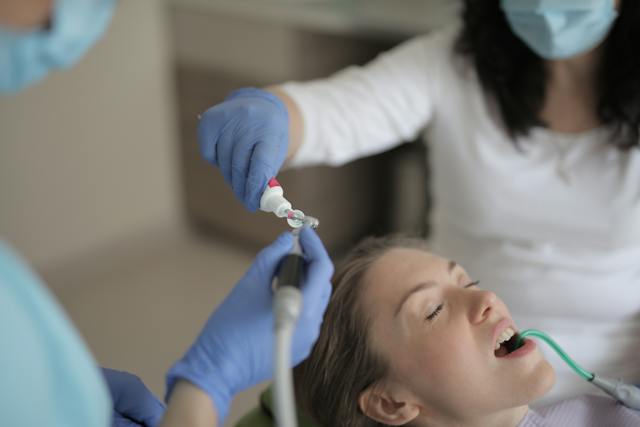
 The loss of a tooth creates a space that can lead to several oral health problems. Adjacent teeth may start to shift or tilt, causing misalignment and bite issues. Uneven pressure distribution during chewing can result in excessive wear on certain teeth, increasing the risk of fractures and damage. Moreover, the exposed gum tissue in the gap left by a missing tooth becomes vulnerable to infection and gum disease.
The loss of a tooth creates a space that can lead to several oral health problems. Adjacent teeth may start to shift or tilt, causing misalignment and bite issues. Uneven pressure distribution during chewing can result in excessive wear on certain teeth, increasing the risk of fractures and damage. Moreover, the exposed gum tissue in the gap left by a missing tooth becomes vulnerable to infection and gum disease. The impact of missing teeth extends beyond physical health. Individuals with missing teeth often experience a decline in self-confidence, leading to social anxiety and reduced quality of life. Oral health issues can affect speech clarity, making it challenging to communicate effectively. Over time, the psychological impact of missing teeth can lead to isolation, low self-esteem, and even depression. Missing teeth can have far-reaching consequences for both oral health and overall well-being.
The impact of missing teeth extends beyond physical health. Individuals with missing teeth often experience a decline in self-confidence, leading to social anxiety and reduced quality of life. Oral health issues can affect speech clarity, making it challenging to communicate effectively. Over time, the psychological impact of missing teeth can lead to isolation, low self-esteem, and even depression. Missing teeth can have far-reaching consequences for both oral health and overall well-being.

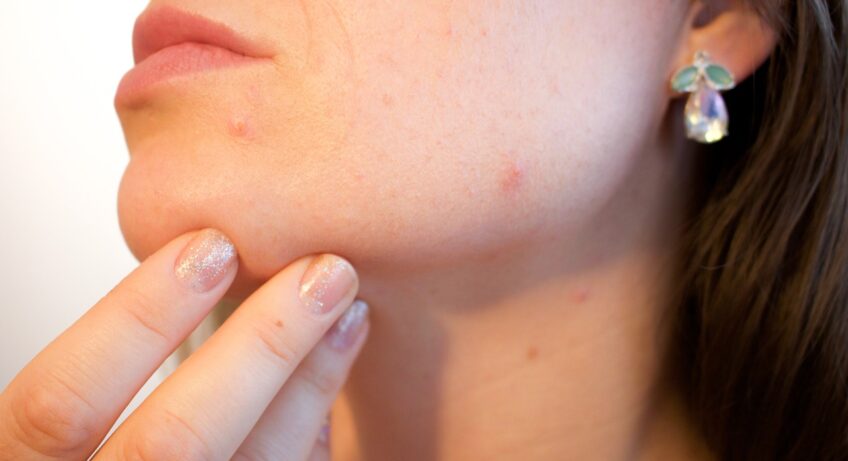
 No one can resist the bliss of a long, hot shower. However, did you know that spending too much time under the steamy spray can actually harm your skin? While it may feel incredibly relaxing and soothing, prolonged exposure to hot water can strip away the body’s natural oils that protect and nourish your skin. This can leave you with dryness, and irritation and even exacerbate conditions like eczema or psoriasis. When we expose our skin to excessive heat for extended periods of time, we also risk disrupting its delicate pH balance.
No one can resist the bliss of a long, hot shower. However, did you know that spending too much time under the steamy spray can actually harm your skin? While it may feel incredibly relaxing and soothing, prolonged exposure to hot water can strip away the body’s natural oils that protect and nourish your skin. This can leave you with dryness, and irritation and even exacerbate conditions like eczema or psoriasis. When we expose our skin to excessive heat for extended periods of time, we also risk disrupting its delicate pH balance. We all love a good cup of coffee to kickstart our day, but did you know that excessive coffee consumption can actually harm your skin health? While caffeine may give you an energy boost, it can also dehydrate your body and ultimately lead to dry and dull skin. When we drink too much coffee, our bodies lose water at a faster rate, causing dehydration. And as we know, hydrated skin is happy and healthy skin! Dehydration can result in fine lines and wrinkles becoming more prominent, making us look older than we actually are.
We all love a good cup of coffee to kickstart our day, but did you know that excessive coffee consumption can actually harm your skin health? While caffeine may give you an energy boost, it can also dehydrate your body and ultimately lead to dry and dull skin. When we drink too much coffee, our bodies lose water at a faster rate, causing dehydration. And as we know, hydrated skin is happy and healthy skin! Dehydration can result in fine lines and wrinkles becoming more prominent, making us look older than we actually are.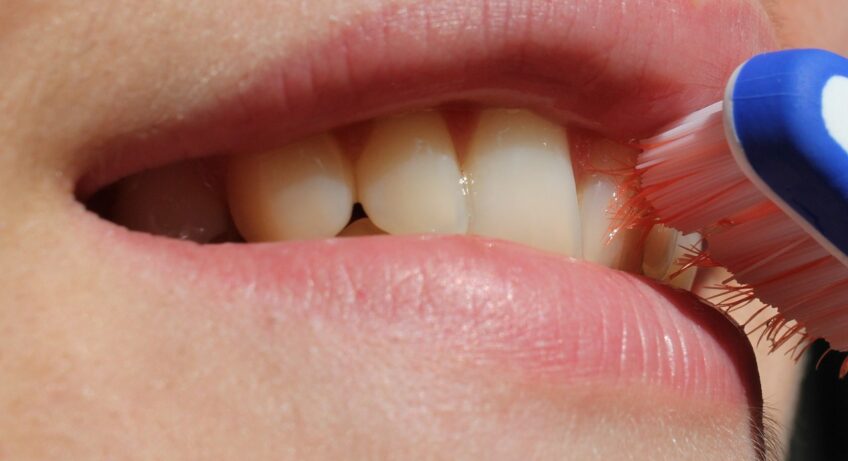
 One of the best ways to improve your oral health is to practice good oral hygiene. Brushing your teeth twice a day with fluoride toothpaste and flossing at least once a day is essential for removing plaque and bacteria from the surfaces of your teeth and gums. Additionally, use an antimicrobial mouthwash to help reduce bacteria that can cause gum disease. Many people are known to have poor oral hygiene habits, so it is important to remember that brushing your teeth should not be done in a rush.
One of the best ways to improve your oral health is to practice good oral hygiene. Brushing your teeth twice a day with fluoride toothpaste and flossing at least once a day is essential for removing plaque and bacteria from the surfaces of your teeth and gums. Additionally, use an antimicrobial mouthwash to help reduce bacteria that can cause gum disease. Many people are known to have poor oral hygiene habits, so it is important to remember that brushing your teeth should not be done in a rush. Another way to improve your oral health is to visit your dentist regularly. The American Dental Association recommends that adults visit their dentist at least once every six months for a routine exam and cleaning. During these visits, your dentist will check for signs of cavities, gum disease, and any other issues affecting your oral health. It’s also important to tell your dentist about any changes in your mouth or teeth since the last visit, such as new spots, bumps, or sensitive areas.
Another way to improve your oral health is to visit your dentist regularly. The American Dental Association recommends that adults visit their dentist at least once every six months for a routine exam and cleaning. During these visits, your dentist will check for signs of cavities, gum disease, and any other issues affecting your oral health. It’s also important to tell your dentist about any changes in your mouth or teeth since the last visit, such as new spots, bumps, or sensitive areas. The last way to improve your oral health is by eating a healthy diet. Eating a balanced diet that contains foods rich in vitamins and minerals helps keep teeth and gums strong. Foods such as apples, greens, and dairy products are particularly good for oral health because they help reduce the number of bacteria in the mouth. Limiting sugary snacks and drinks is also important, which can cause cavities. If you do indulge in sugary treats, make sure to brush your teeth afterward. If the food contains acids, such as citrus fruits or juices, wait at least 30 minutes before brushing your teeth.
The last way to improve your oral health is by eating a healthy diet. Eating a balanced diet that contains foods rich in vitamins and minerals helps keep teeth and gums strong. Foods such as apples, greens, and dairy products are particularly good for oral health because they help reduce the number of bacteria in the mouth. Limiting sugary snacks and drinks is also important, which can cause cavities. If you do indulge in sugary treats, make sure to brush your teeth afterward. If the food contains acids, such as citrus fruits or juices, wait at least 30 minutes before brushing your teeth.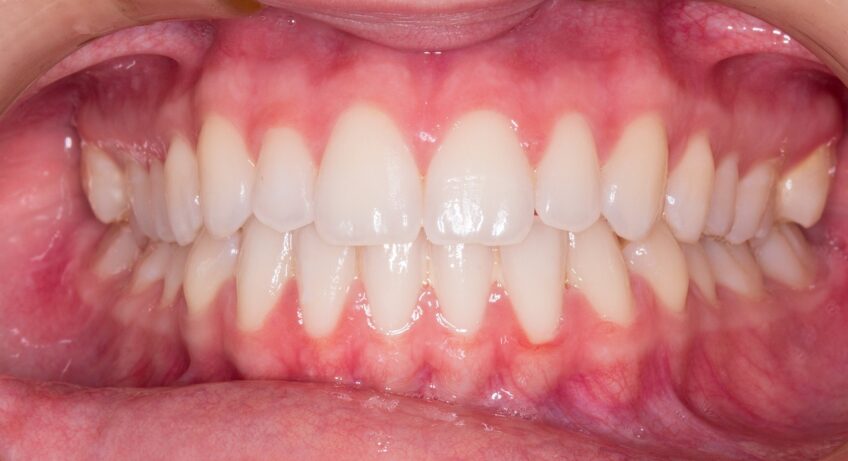
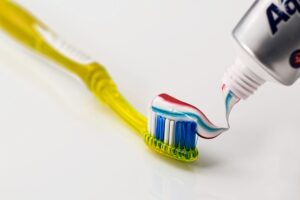 Unlike traditional braces, Invisalign requires special maintenance as the aligners should be kept clean and free of bacteria build-up. So, your child should never miss having two toothbrushes on the shelves: one for their regular use and another solely dedicated to cleaning their aligners. In some cases, a soft-bristled toothbrush or a denture cleaner can be used instead of a dedicated brush. This also should align with regular cleaning, including brushing twice a day, flossing, and using mouthwash.
Unlike traditional braces, Invisalign requires special maintenance as the aligners should be kept clean and free of bacteria build-up. So, your child should never miss having two toothbrushes on the shelves: one for their regular use and another solely dedicated to cleaning their aligners. In some cases, a soft-bristled toothbrush or a denture cleaner can be used instead of a dedicated brush. This also should align with regular cleaning, including brushing twice a day, flossing, and using mouthwash. Okay, your kids may have thousands of reasons not to go to their
Okay, your kids may have thousands of reasons not to go to their 

 A support system is essential for reaching any goal, but it can be especially helpful regarding weight loss. The health journey can be difficult at times, and it’s essential to have people around you who can encourage, motivate, and inspire you along the way. Find a friend or family member who will be your cheerleader and hold you accountable for staying on track with your weight loss goals.
A support system is essential for reaching any goal, but it can be especially helpful regarding weight loss. The health journey can be difficult at times, and it’s essential to have people around you who can encourage, motivate, and inspire you along the way. Find a friend or family member who will be your cheerleader and hold you accountable for staying on track with your weight loss goals.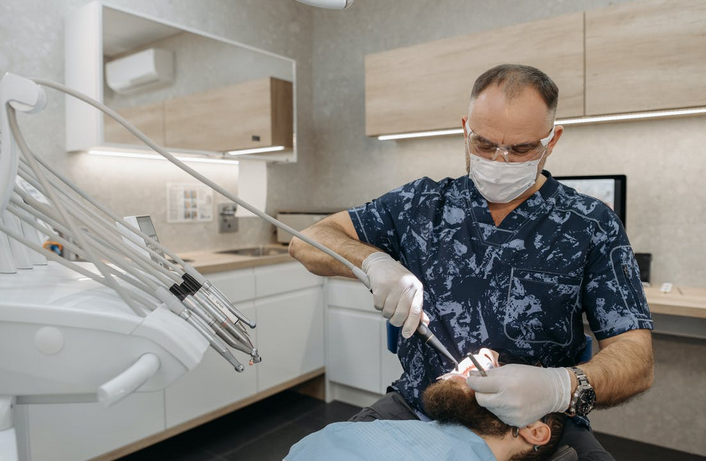
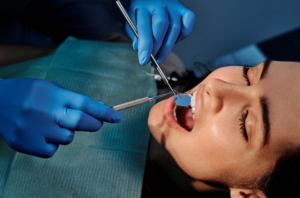 Before choosing a dentist, you should always check their qualifications and training. You can do this by asking for their credentials or checking with your local dental society. The American Dental Association (ADA) is a good resource for finding qualified dentists in your area.
Before choosing a dentist, you should always check their qualifications and training. You can do this by asking for their credentials or checking with your local dental society. The American Dental Association (ADA) is a good resource for finding qualified dentists in your area.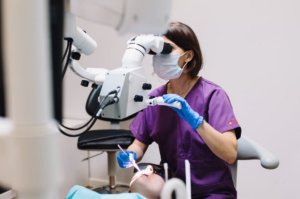 It would be best if you also took some time to research the
It would be best if you also took some time to research the 

 Weight loss supplements also increase your energy levels. This helps improve your performance when exercising, which in turn aids the process of burning calories. Besides, you will feel energized and easily stay focused and motivated to achieve your body goals and lead a healthy lifestyle.
Weight loss supplements also increase your energy levels. This helps improve your performance when exercising, which in turn aids the process of burning calories. Besides, you will feel energized and easily stay focused and motivated to achieve your body goals and lead a healthy lifestyle.
 You should make a habit of always reading the reviews before purchasing any product online. Alicia’s Bio Complete 3 Review is among the many sites you can find online with reviews on different supplements. Through reading what others say, you can know how supplements work and if you need to buy them.
You should make a habit of always reading the reviews before purchasing any product online. Alicia’s Bio Complete 3 Review is among the many sites you can find online with reviews on different supplements. Through reading what others say, you can know how supplements work and if you need to buy them.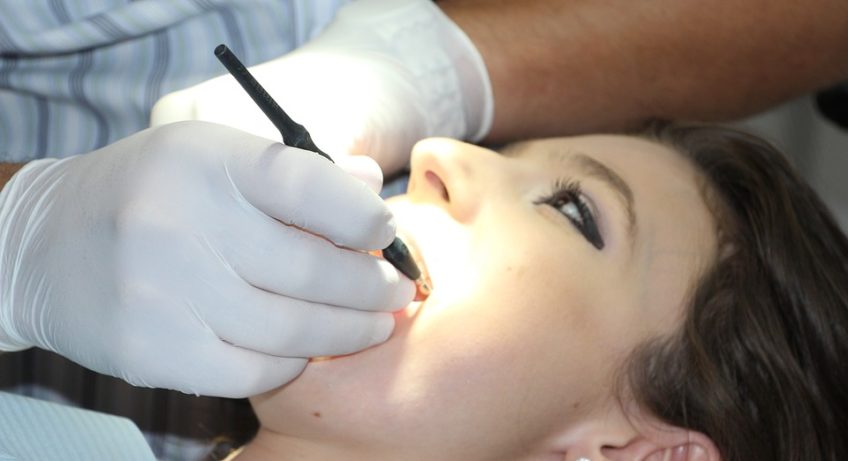

 Other studies have shown that taking HGH helps increase your overall energy levels, regulate blood, increase energy, and improve memory and vision. Before you use this supplement, you should consult your doctor and look at various medications that include over-the-counter medications. You need to ensure you use the supplement without worrying about side effects as a result of using other drugs. These are some of the ways to increase the amount of this supplement naturally in the body.
Other studies have shown that taking HGH helps increase your overall energy levels, regulate blood, increase energy, and improve memory and vision. Before you use this supplement, you should consult your doctor and look at various medications that include over-the-counter medications. You need to ensure you use the supplement without worrying about side effects as a result of using other drugs. These are some of the ways to increase the amount of this supplement naturally in the body.

 If you don’t know anything about enhancement pills or products, consider asking for help from one of the store people. Online support is also available for anyone shopping on the internet. If you have a long-term partner, it’s advisable to share your plans with them. Sometimes the thought of under-performing in bed is enough to make a person doubt their performance.
If you don’t know anything about enhancement pills or products, consider asking for help from one of the store people. Online support is also available for anyone shopping on the internet. If you have a long-term partner, it’s advisable to share your plans with them. Sometimes the thought of under-performing in bed is enough to make a person doubt their performance.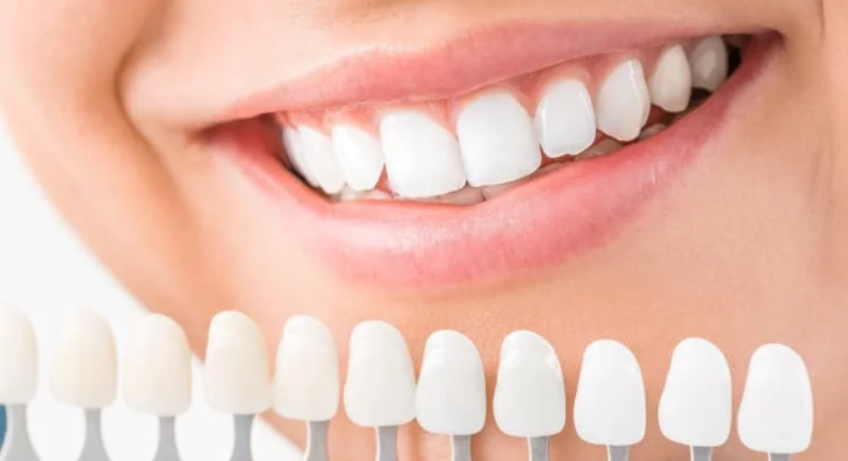
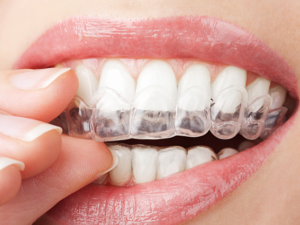 You should note that not all teeth whitening remedies sold over-the-counter are safe. In fact, using some of them can damage your teeth and gum. That is because they make teeth quite sensitive to whatever you put in the mouth. Professional dentists administer safe products. Moreover, you will learn how to take care of the teeth and prevent common dental diseases.
You should note that not all teeth whitening remedies sold over-the-counter are safe. In fact, using some of them can damage your teeth and gum. That is because they make teeth quite sensitive to whatever you put in the mouth. Professional dentists administer safe products. Moreover, you will learn how to take care of the teeth and prevent common dental diseases.
 Erectile dysfunction is sometimes challenging to diagnose. You will need to check yourself over time and monitor your symptoms before a doctor diagnoses you with ED. There are three signs that you are dealing with erectile dysfunction.
Erectile dysfunction is sometimes challenging to diagnose. You will need to check yourself over time and monitor your symptoms before a doctor diagnoses you with ED. There are three signs that you are dealing with erectile dysfunction.

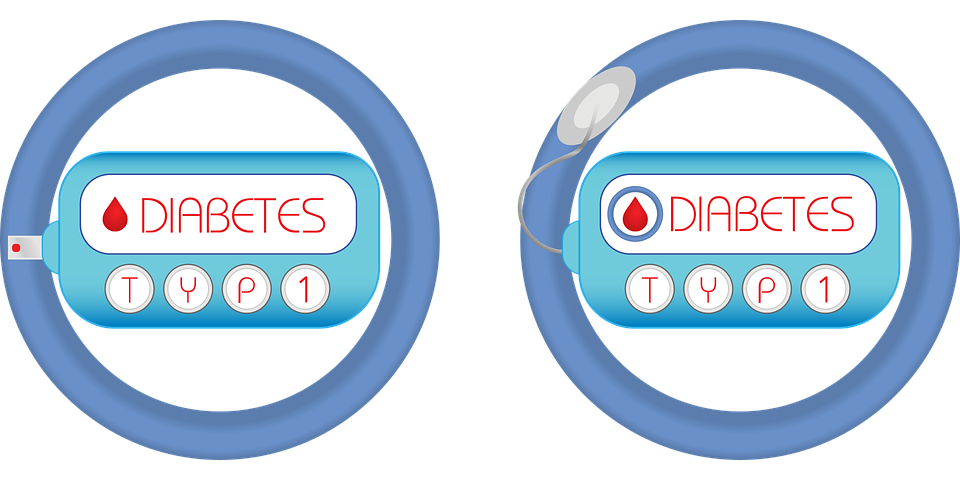

 for faster absorption into your body. The product will be absorbed quickly into your body through the lungs into your bloodstream. This is essential for quick knee pain treatment. You should look for quality CBD oil available online or other mainstream outlets for your knee pain treatment.…
for faster absorption into your body. The product will be absorbed quickly into your body through the lungs into your bloodstream. This is essential for quick knee pain treatment. You should look for quality CBD oil available online or other mainstream outlets for your knee pain treatment.…
 pills, skin patches, and birth control pills that reduce periods. Some of these birth controls when you use them, you will only have your period every three months. It also results in fewer cramps.
pills, skin patches, and birth control pills that reduce periods. Some of these birth controls when you use them, you will only have your period every three months. It also results in fewer cramps.
 do before kick-starting this type of exercise. Warming up is essential as it helps to get your muscles ready for these vigorous workouts. You should also hydrate to reduce the chances of your muscles wearing out fast. Strength training exercises can benefit your body in so many ways. They include:
do before kick-starting this type of exercise. Warming up is essential as it helps to get your muscles ready for these vigorous workouts. You should also hydrate to reduce the chances of your muscles wearing out fast. Strength training exercises can benefit your body in so many ways. They include:


 These gloves are also available in a variety of colors to fit the consumers’ taste. Sturdy and comfortable Velcro wrist stability is also an added advantage that comes with them. They come in a variety of accurately matching sizes. Their life expectancy lies between 9-12 months.
These gloves are also available in a variety of colors to fit the consumers’ taste. Sturdy and comfortable Velcro wrist stability is also an added advantage that comes with them. They come in a variety of accurately matching sizes. Their life expectancy lies between 9-12 months.
 your workouts to get the
your workouts to get the 
 Vape is also called an e-cigarette, though it is nothing like a cigarette. With vape, you do not need a lighter or any type of fire to smoke it since it is using another type of energy which is electricity. There are two types of vape, the one that requires batteries or the other one where you can charge it. What makes it better and healthier than a cigarette is the level of nicotine, it claims that it will not harm your lungs and is not addictive. And to vape, all you need is a mod and the flavor juice.
Vape is also called an e-cigarette, though it is nothing like a cigarette. With vape, you do not need a lighter or any type of fire to smoke it since it is using another type of energy which is electricity. There are two types of vape, the one that requires batteries or the other one where you can charge it. What makes it better and healthier than a cigarette is the level of nicotine, it claims that it will not harm your lungs and is not addictive. And to vape, all you need is a mod and the flavor juice. Mod is the name of the device that you use to vape. It is what transform the juice flavors into smoke that you can suck and inhale. Do more in-depth research into the type of mod that will suits your lifestyle the best. Some are bigger or smaller, more expensive and cheaper, so not every mod is for you. Consider where you want to vape, how you want to carry it around, how you prefer to charge the device, and how much is your budget to help you figure out which one that you should buy.…
Mod is the name of the device that you use to vape. It is what transform the juice flavors into smoke that you can suck and inhale. Do more in-depth research into the type of mod that will suits your lifestyle the best. Some are bigger or smaller, more expensive and cheaper, so not every mod is for you. Consider where you want to vape, how you want to carry it around, how you prefer to charge the device, and how much is your budget to help you figure out which one that you should buy.…
 In the modern times, the internet has managed to offer people easy access to information. And when you want to know about the hygienist in your area, the first thing you need to do is google them. What makes the internet the most reliable source of information is the fact that you can read reviews and know what people who have utilized the services of a hygienist are saying. Never go for the services of a dental organization with negative reviews.
In the modern times, the internet has managed to offer people easy access to information. And when you want to know about the hygienist in your area, the first thing you need to do is google them. What makes the internet the most reliable source of information is the fact that you can read reviews and know what people who have utilized the services of a hygienist are saying. Never go for the services of a dental organization with negative reviews. An excellent hygienist as a dentist needs to be qualified. And if you will not inquire about the eligibility of a person who will be diagnosing you, then you may end up getting the services of a quack medic. Know that there is nothing worse than getting treated for the wrong disease using the wrong methods and prescriptions. An excellent hygienist should be qualified and certified by a known medical institution.
An excellent hygienist as a dentist needs to be qualified. And if you will not inquire about the eligibility of a person who will be diagnosing you, then you may end up getting the services of a quack medic. Know that there is nothing worse than getting treated for the wrong disease using the wrong methods and prescriptions. An excellent hygienist should be qualified and certified by a known medical institution.






 Contrary to what we commonly see in TV commercials, fish is not always good for cats, especially for the kittens. Raw fish has an enzyme that can degrade vitamin B1, of which the deficiency can be fatal to kittens. Loss of coordination, abnormal weight loss, and seizures are the symptoms of vitamin B1 deficiency.
Contrary to what we commonly see in TV commercials, fish is not always good for cats, especially for the kittens. Raw fish has an enzyme that can degrade vitamin B1, of which the deficiency can be fatal to kittens. Loss of coordination, abnormal weight loss, and seizures are the symptoms of vitamin B1 deficiency. When having a pet, we often rely solely on the pet food products available on the market. Whether the wet or the dry one, ready-to-eat pet foods contain preservatives that might not be good for cat’s health in the long run. It is better for you to feed your cat with foods you prepare by yourself. Buy cheap bones and leftover meats from the butcher or fish store. Chicken heads will do the trick too. Cats eat innards and cartilage, so whenever you buy meats, give your cat those parts. If you want to cook the innards, you can steam or boil them.
When having a pet, we often rely solely on the pet food products available on the market. Whether the wet or the dry one, ready-to-eat pet foods contain preservatives that might not be good for cat’s health in the long run. It is better for you to feed your cat with foods you prepare by yourself. Buy cheap bones and leftover meats from the butcher or fish store. Chicken heads will do the trick too. Cats eat innards and cartilage, so whenever you buy meats, give your cat those parts. If you want to cook the innards, you can steam or boil them. The number one rule of survival is that we must not eat where we excrete. Fecal matters contain bacteria and waste the body dispose of. And if we spend time around those organic waste too much, we can get sick. The same rule applies to cats, especially if you cage them.
The number one rule of survival is that we must not eat where we excrete. Fecal matters contain bacteria and waste the body dispose of. And if we spend time around those organic waste too much, we can get sick. The same rule applies to cats, especially if you cage them.

 It is unfortunate that patients suffering from this disorder may fail to cope with daily routines. In some instances, they may refuse to do even their favorite tasks. For instance, they may refuse to eat, take a bath, or even get involved in routine duties. In case this happens, you ought to be patient and flexible. Try out other options that may work well with their current state. More to this, exercise patience, encourage independence and reduce any form of distractions.
It is unfortunate that patients suffering from this disorder may fail to cope with daily routines. In some instances, they may refuse to do even their favorite tasks. For instance, they may refuse to eat, take a bath, or even get involved in routine duties. In case this happens, you ought to be patient and flexible. Try out other options that may work well with their current state. More to this, exercise patience, encourage independence and reduce any form of distractions.
 There is a wide array of different types of supplements there are out there in the market. There are lots of different types of supplements for different types of purposes. When choosing a supplement, it is important that you have an idea of what type of problem or what type of purpose that you need the supplement for.
There is a wide array of different types of supplements there are out there in the market. There are lots of different types of supplements for different types of purposes. When choosing a supplement, it is important that you have an idea of what type of problem or what type of purpose that you need the supplement for. Before buying supplements, you can ask for recommendations to have a better clue on which one is the best. You should consult your doctor or physician for their opinions on which supplement is best for you to use since they can recommend you their preference. You can also ask recommendations from your family, friends, and colleague to know which one they are using. However, you should still consult with your doctor or physician to know whether or not they are safe to consume.…
Before buying supplements, you can ask for recommendations to have a better clue on which one is the best. You should consult your doctor or physician for their opinions on which supplement is best for you to use since they can recommend you their preference. You can also ask recommendations from your family, friends, and colleague to know which one they are using. However, you should still consult with your doctor or physician to know whether or not they are safe to consume.…



 This oil is obtained from oregano. This plant is a member of the mint family. The oil contains phenols or the chemical compounds that can kill Candida albicans, Giardia, and E.coli. All these compounds boost the immune system naturally.
This oil is obtained from oregano. This plant is a member of the mint family. The oil contains phenols or the chemical compounds that can kill Candida albicans, Giardia, and E.coli. All these compounds boost the immune system naturally.